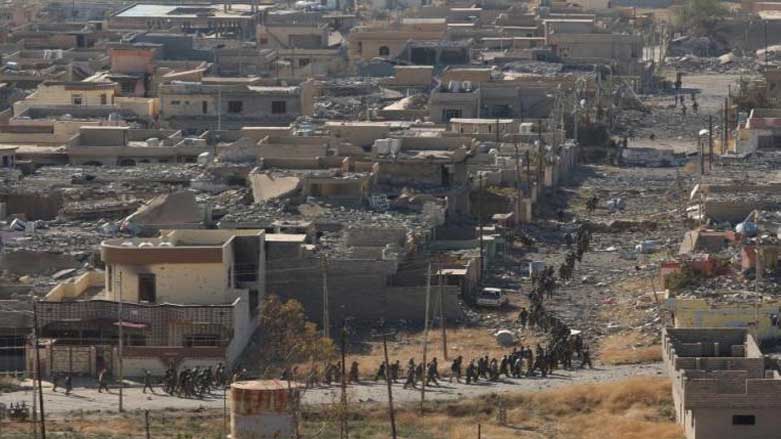UN: 16 mass graves found after Sinjar freed from IS
OsamaSami.jpg)
BY
IRBIL, Iraq (AP) -- The U.N. human rights office in Iraq said on Friday that it has received reports of 16 mass graves discovered near the town of Sinjar after it was liberated from the Islamic State group last month.
The reports were the latest among many instances of mass graves being uncovered in territory wrested from IS militants in Iraq and Syria - thousands of people have been killed in summary and extrajudicial killings by the Sunni militants and the graves have been a dark testimony to the group's brutality.
In June 2014, some 1,700 Iraqi soldiers were captured and then killed by IS militants when they overran Saddam Hussein's hometown of Tikrit. At the time, the soldiers were trying to flee from Camp Speicher, a nearby army base where they were deployed. Mass graves with hundreds of Iraqi soldiers' bodies were found after the city was liberated in April.
There were no immediate details about how many bodies might be inside the newly found Sinjar graves, according to spokeswoman Cecile Pouilly of the Office of the High Commissioner for Human Rights.
She did not provide the source of the reports but said that her office has called on Iraq's government to investigate.
Sinjar Mayor Mahma Khalil told The Associated Press that a total of 17 mass and collective graves have been uncovered inside Sinjar and on the outskirts of the town. He did not give any further information or estimates on the number of bodies the graves could hold.
The IS group captured Sinjar during its rampage across northern Iraq in the summer of 2014 and killed and captured thousands of members of the Yazidi religious minority, including women who were forced into sexual slavery. The extremist group's rapid expansion in Iraq's north, which included a push toward the city of Irbil - the regional capital of Iraq's Kurdish north - spurred the U.S.-led coalition to launch a campaign of airstrikes against IS in Iraq and later Syria in August 2014.
Whenever a discovery of mass graves is made, experts warn that proper excavation and identification of the bodies could take months or longer as many of the sites identified are in close proximity to active front lines.
The U.N. uses the term mass grave to refer to a location where three or more victims of what the world body defines as extra-judicial, summary or arbitrary executions are buried - not those who have been killed in combat, attacks such as bombings or armed confrontation.
Pouilly, the U.N. office's spokeswoman, also expressed concern about increasing discrimination, harassment and violence against Sunni Arabs by other groups in parts of Iraq that have been freed from IS' control, as Sinjar was in mid-November.
She cautioned that many Sunnis who once lived under IS control were forced to obey the extremist group at the risk of punishment or death. Now freed, they are "perceived as having supported" the militant group, which is unfair, Pouilly added.
Among the first mass graves uncovered in Sinjar - within days of IS forces being pushed out of the town - was one near the town's center that has been estimated to contain the bodies of 78 elderly women, and another, about 15 kilometers (10 miles) outside of Sinjar, with between 50 and 60 bodies of men, women and children, according to Qasim Samir, the Sinjar head of intelligence.
Meanwhile, the U.S.-led coalition aircraft carried out 18 airstrikes on Iraq Friday, including one near Sinjar that targeted an IS tactical unit, the coalition said.
---
Associated Press writers Jamey Keaten in Geneva and Susannah George in Baghdad contributed to this report.

.jpg)
